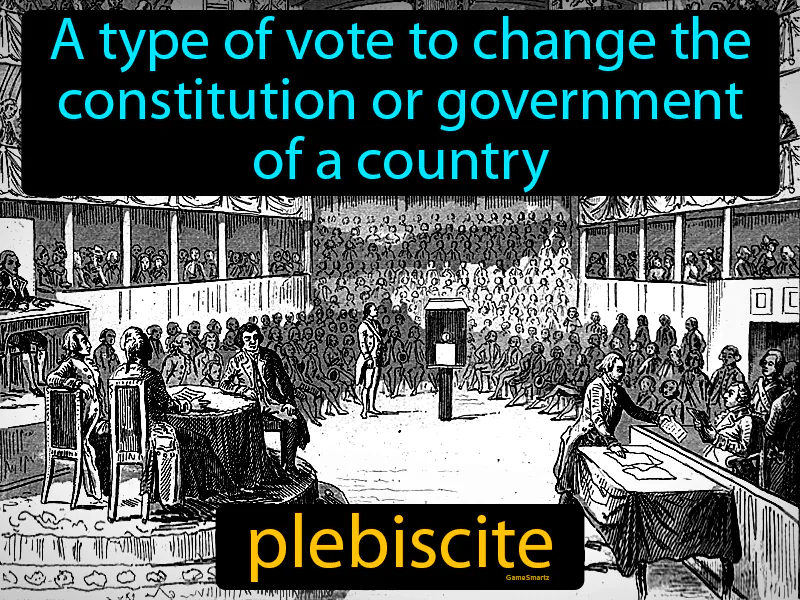Plebiscite
A type of vote to change the constitution or government of a country
Real World Example
During the French Revolution and Napoleon's rule, plebiscites were used to legitimize changes to the government, allowing citizens to vote directly on important issues. Napoleon, for example, used plebiscites to confirm his role as Emperor, giving an appearance of public approval for his leadership. This highlighted the tension between democracy and authoritarianism, showing how leaders might use public votes to strengthen their power. Today, plebiscites are still relevant as they empower citizens to have a direct say in important decisions, like when countries vote on independence or major policy changes. For an average person, this means they can influence significant national issues directly, similar to voting on local matters like school funding or community projects.

